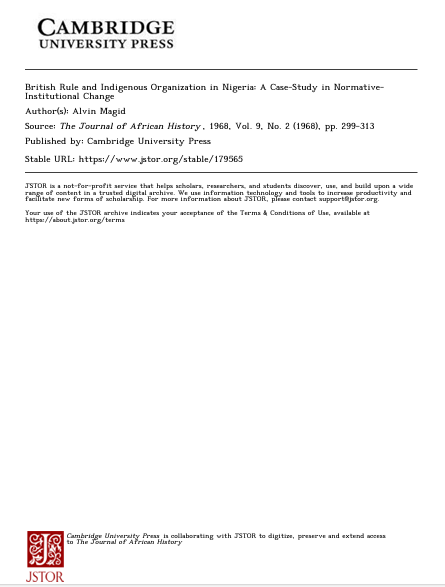
British Rule and Indigenous Organization in Nigeria: A Case-Study in Normative Institutional Change
Author: Alvin Magid Category: Geo-Politics, History, Journals, Nigerian History, Politics, Religion More DetailsTHEORISTS of Indirect Rule assumed a relationship between colonial strategy and the degree of political development in African tribal societies.1 An important consequence of that assumption was a tendency to define in largely normative terms colonial responsibility vis-a-vis societies with more highly developed administrative structures. For example, given the ‘intelligence and powers of the Fulani caste,’ the primary objective in Muslim Northern Nigeria was the injection of a catalytic agent into the emirate system: the presumed wisdom of a ‘higher civilization,’ including such alien notions as ‘progress’ and ‘administrative efficiency.’2 In theory, British rule represented an exercise in plant maintenance and accretion: a well-constructed engine (the indigenous hierarchy, including Emir, District and Village Heads, and alkali or Islamic Courts) would be incorporated into a still wider politico-administrative network (including a bureaucratic engine with European administrative, judicial and technical components). Together they would constitute, in the words of M. G. Smith, a ‘contraposition of co-ordinate units.’3 This scheme predicated that European norms would govern behaviour in the indigenous sector. Moreover, it projected the expansion of the latter to include ‘modern’ treasury, education, and technical components; these were also to be lubricated by alien norms.
